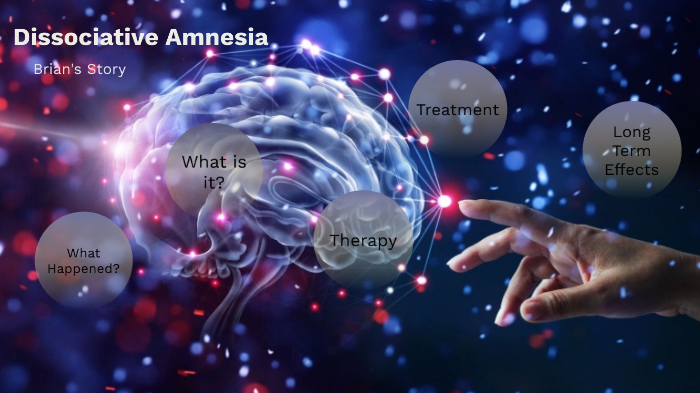
Given the heterogeneous nature of the syndromes and those who suffer from them, it is no wonder that dissociative disorders are the subject of at times intense controversy.įinally, there are a number of dissociative conditions described in the DSM-IV.
AMNESIA DISSOCIATIVE DISORDER MANUAL
The Diagnostic and Statistical Manual of Mental Disorders, Fourth Edition (DSM-IV) is careful to avoid any etiological hypotheses when describing dissociative behavior, and there certainly exist case reports that involve individuals with significant dissociative symptoms that occur in the absence of an identifiable stressor. However, it is not the case that trauma is a necessary etiological factor in the development of dissociation. To this extent, dissociative phenomena are often discussed in the setting of trauma studies, and case reports of dissociation detail those who have suffered a single, horrifying event, as well as those who have suffered the repeated neglect and abuse that characterizes early poor attachment. Nevertheless, most clinicians continue to view the concept of dissociation as a rare, albeit possible, response to horrific and traumatic events and experiences. Certainly, the most famous of the dissociative conditions, dissociative identity disorder (DID), is featured in more than a half a dozen popular films and is sometimes mentioned in the now somewhat discounted “epidemic” of ritual satanic cults said to spawn new cases of dissociative disorder in the 1980s. 1 Furthermore, although the concept of dissociation is more than 100 years old, there continues to exist great debate as to the validity of the symptoms of dissociation itself, as to whether the symptoms of dissociative disorders are better accounted for as subsets of different psychiatric conditions (e.g., anxiety disorders, posttraumatic stress disorder, brief traumatic reactions, psychotic disorders, and attachment disorders), and as to the extent to which political and even cinematic agendas have contributed to the current conceptualization of dissociative syndromes. Thus, a patient may experience a distinct alteration in personality or experience, in which thoughts, feelings, or actions are not logically integrated with other self-referential experiences. Central to the conceptualization of dissociation is the understanding that a person’s consciousness may not be fully integrated.

Dissociative disorders are among the most controversial, as well as the most intriguing, psychiatric conditions.


 0 kommentar(er)
0 kommentar(er)
